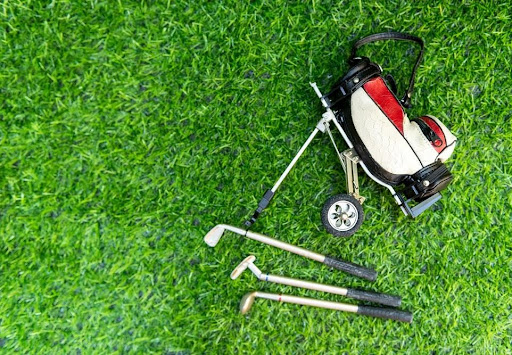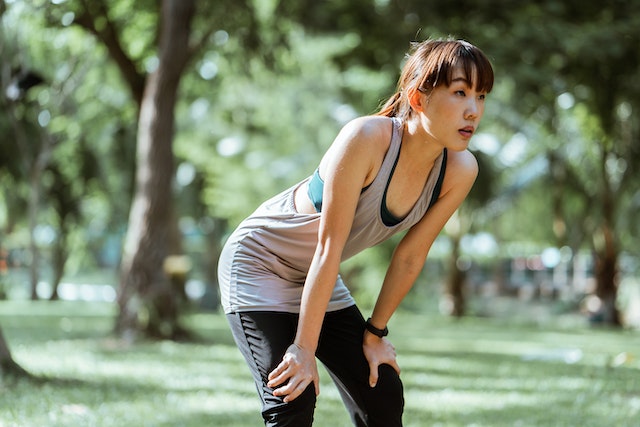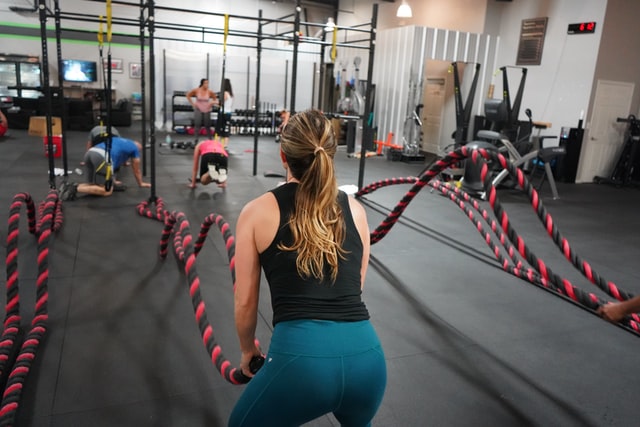Most people may see golf as a low-impact sport, but golfers are never immune to injury risks. Golf injuries usually result from improper technique and overexertion, but ill-fitting or poorly-chosen equipment can aggravate these issues. From your cart to your clubs, every piece of golf equipment should fit your skill level and support your movements. In this article we look at golf injury prevention and explore how the right golf gear can keep you safe and performing at your best.
Golf Carts And Bags For Reducing Strain
Carrying or pulling a heavy golf bag for 18 holes can strain your legs and lower back. Using a cart reduces stress on your body and allows you to conserve energy, particularly during long or hilly rounds. High-quality golf carts like the Golf Carts of ATX can actually be a game-changer for injury prevention, as they allow you to rest between shots and minimize overusing your muscles and joint. For people with mobility challenges or those recovering from injuries, golf carts also provide a way to remain active without risking further injury.
Similarly, lightweight and ergonomic golf bags with padded straps can distribute weight evenly across your shoulders. These are particularly useful if you’re prone to back pain.
Golf Gloves For Stability And Protection
The repetitive swinging motion of golf can lead to blisters, calluses, and wrist pain, especially if your grip isn’t stable. Well-fitted golf gloves are an essential piece of gear that not only improves your grip, but also helps prevent injuries like tendonitis and carpal tunnel syndrome. Extra padding in the palm and fingers can provide additional comfort and reduce friction, which helps prevent bumps and swelling. Choose gloves that fit snugly but not too tight – all the better if it’s made of breathable material.
Golf Shoes For Better Grip And Traction
Your feet are the foundation of your stance, swing, and overall balance when playing golf. Since the sport involves walking long distances and standing for extended periods, the right golf shoes can make a big difference in preventing injuries to your feet, ankles, knees, and lower back. Golf trainers with proper arch support can help distribute your weight and absorb impact, reducing pressure on your feet and preventing conditions like metatarsal pain. It’s also essential to have shoes with good traction, such as spikes or specifically designed soles, to help prevent slipping when the course is wet. For golfers with specific foot issues, such as flat feet or high arches, custom orthotics can be added to golf shoes for additional support or comfort.
Golf Clubs For Proper Posture
One of the most critical factors in preventing injury in golf is using clubs that are tailored to your size, strength, and swing speed. Ill-fitted clubs can force you into awkward postures that put undue strain on your joints and muscles. Too long and you’ll crouch, too short and you’ll overextend. Heavy clubs may offer more power but can strain your wrists, elbows, and shoulders over time. If you’re prone to injuries, consider lighter clubs that provide easier control without overexertion.
Likewise, the thickness of your clubs plays a role in preventing wrist and elbow injuries. Grips that are too small can cause you to over-grip and develop golfer’s elbow, while those that are too large can limit your wrist movement. Opt for grips that feel comfortable in your hand, allow for a natural swing, and suit your playing style.
Stay Safe And Play Strong
Golf is an enjoyable and rewarding sport, but just like any physical activity, it carries a risk of injury. The choices you make about your gear – whether it’s a golf cart, gloves, shoes, or clubs – can go a long way in preventing common health issues. Investing in high-quality and properly fitted equipment can enhance your performance and stay injury-free on the course.



